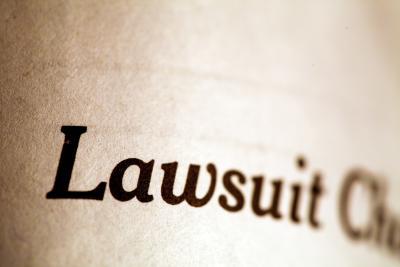New ADA Laws Could Provide Relief
New ADA Laws Could Provide Relief
by Bryan Mashian, Esq.
Relief may be in sight for property and business owners from the rampant abuse by predatory ADA plaintiffs. As many have experienced, California law allowed a disabled person who encountered an accessibility violation to immediately sue without prior notice or opportunity to cure. These “professional” litigants typically sued for the minimum statutory damages of $4,000 per violation, plus attorney’s fees. Quite often, the same plaintiff would claim multiple violations at a single property. Even with a violation that was minor or caused no injury, most property and business owners typically opted to settle since it was less expensive.
Recent changes to the law are intended to assist California landlords, tenants and business owners by implementing three major adjustments. First, the new law encourages property and business owners to reduce their exposure in ADA lawsuits by hiring a Certified Access Specialist (CASp) to evaluate the property. Second, the law requires new commercial leases which are effective as of July 1, 2013 to disclose whether the property has been inspected by a CASp. Lastly, the new law imposes strict and rigorous new procedures on attorneys in pursuing alleged violations of construction-related disability access laws.
While the new law does not require business or property owners to hire a CASp, any property or business owner who obtains a CASp inspection and corrects an unintentional violation within 60 days of a complaint would only be liable for statutory damages of $1,000 per offense (instead of $4,000). As a practical matter, obtaining a CASp inspection allows the owner to proactively fix any identified violations, which would save any fines and penalties if the violation were discovered by a governmental authority. Because small businesses cannot afford CASp reports as readily, the new law reduces the $4,000 fine to $2,000 if a small business corrects an unintentional violation within 30 days of being served, even without a CASp inspection.
When a CASp inspects the premises and deems it compliant with disability access laws, the landlord or tenant will receive an inspection certificate. This certificate reflects diligence and compliance with disability access requirements. The CASp inspection stickers that are provided upon completion should be visibly displayed, which helps to reduce exposure to disability access lawsuits.
Also, the CASp inspection can be cited as evidence in defense of private litigation arising from claims by property purchasers, tenants and/or customers on disability access issues.
A disadvantage of obtaining a CASp inspection could be the discovery of problems which would have to be corrected, or at minimum disclosed to potential buyers or tenants. The CASp will inspect not only the individual premises leased but also common areas, such as bathrooms, elevators and building lobbies, increasing the probability of a disability access issue being discovered.
Effective as of July 1st, 2013, new commercial leases must state whether a CASp report was obtained and its outcome. Obtaining a CASp inspection is not required, but its absence may prompt the tenant to require the landlord to either undertake or pay for such inspection. Obtaining a CASp report will help assess whether the leased premises violate accessibility laws, the estimated costs of correcting any violation, and the associated exposure from potential accessibility lawsuits.
Finally, attorneys pursuing alleged claims of disability access law violations are now prohibited from sending letters demanding money in lieu of filing a lawsuit. Instead, attorneys will be required to disclose the alleged violation in significant detail so that property owners are able to easily identify any violations. A form written advisory is also required to be provided with each demand letter.
While the added requirements imposed on “professional” litigants can be overcome without much difficulty, property and business owners can preemptively conduct CASp inspections and reduce their exposure. Being proactive in conducting these inspections and making the required corrections is the only surefire way to limit financial exposure to accessibility lawsuits.




































